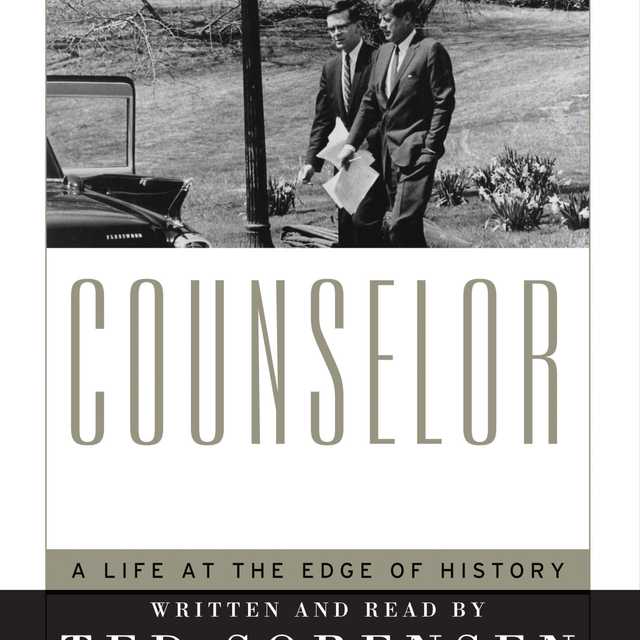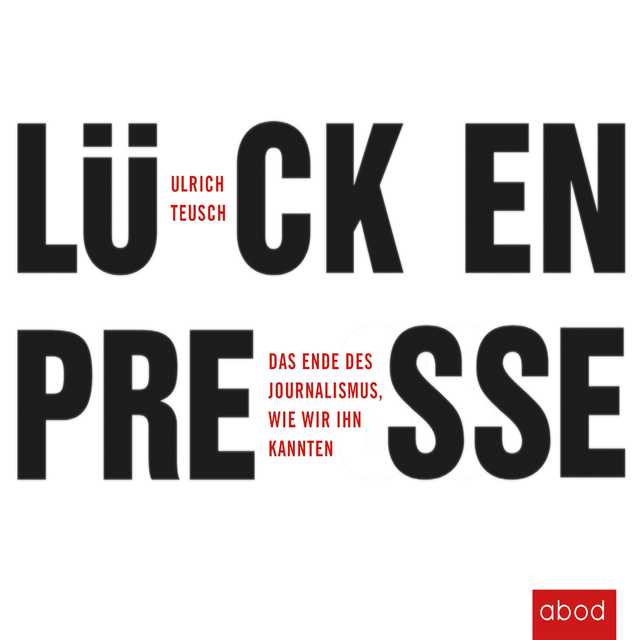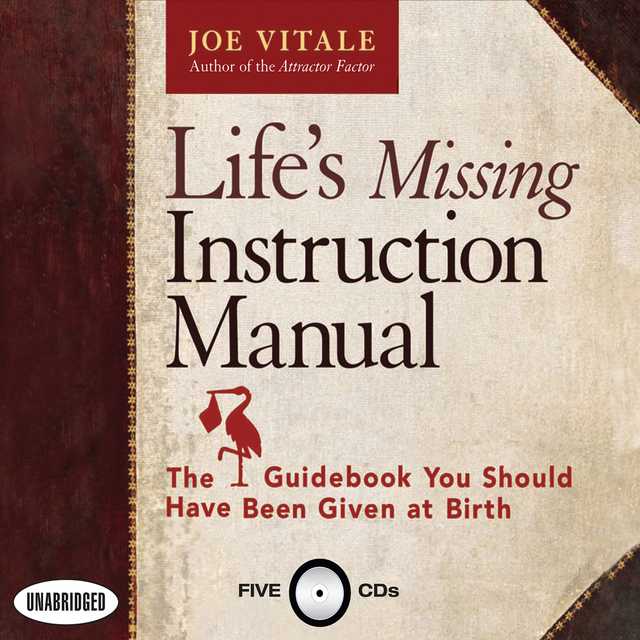Counselor Audiobook Summary
In this gripping memoir, John F. Kennedy’s closest advisor recounts in full for the first time his experience counseling Kennedy through the most dramatic moments in American history.
Sorensen returns to January 1953, when he and the freshman senator from Massachusetts began their extraordinary professional and personal relationship. Rising from legislative assistant to speechwriter and advisor, the young lawyer from Nebraska worked closely with JFK on his most important speeches, as well as his book Profiles in Courage. Sorensen encouraged the junior senator’s political ambitions–from a failed bid for the vice presidential nomination in 1956 to the successful presidential campaign in 1960, after which he was named Special Counsel to the President.
Sorensen describes in thrilling detail his experience advising JFK during some of the most crucial days of his presidency, from the decision to go to the moon to the Cuban Missile Crisis, when JFK requested that the thirty-four-year-old Sorensen draft the key letter to Khrushchev at the most critical point of the world’s first nuclear confrontation. After Kennedy was assassinated, Sorensen stayed with President Johnson for a few months before leaving to write a biography of JFK. In 1968 he returned to Washington to help run Robert Kennedy’s presidential campaign. Through it all, Sorensen never lost sight of the ideals that brought him to Washington and to the White House, working tirelessly to promote and defend free, peaceful societies.
Illuminating, revelatory, and utterly compelling, Counselor is the brilliant, long-awaited memoir from the remarkable man who shaped the presidency and the legacy of one of the greatest leaders America has ever known.
Other Top Audiobooks
Counselor Audiobook Narrator
Ted Sorensen is the narrator of Counselor audiobook that was written by Ted Sorensen
Ted Sorensen was born in Lincoln, Nebraska, and after law school moved to Washington, D.C., where he would ultimately work for John F. Kennedy. He left the White House soon after JFK’s death, and in 1966 joined a New York City law firm, where, as a prominent international lawyer, he advised governments, multinational organizations, and major corporations around the world. He is the author of the New York Times bestseller Counselor: A Life at the Edge of History. Sorensen remained active in political and international issues until his death in 2010.
About the Author(s) of Counselor
Ted Sorensen is the author of Counselor
More From the Same
- Publisher : HarperAudio
- Abraham
- American Gods [TV Tie-In]
- Dead Ringer
- House of Sand and Fog
- Prey
Counselor Full Details
| Narrator | Ted Sorensen |
| Length | 14 hours 28 minutes |
| Author | Ted Sorensen |
| Publisher | HarperAudio |
| Release date | May 06, 2008 |
| ISBN | 9780061630613 |
Additional info
The publisher of the Counselor is HarperAudio. The imprint is HarperAudio. It is supplied by HarperAudio. The ISBN-13 is 9780061630613.
Global Availability
This book is only available in the United States.
Goodreads Reviews
Brian
April 02, 2020
Long-standing five or six-star interest in the subject contrasted with a still very solid four-star rating mean that, for my taste, Sorensen too often used the attention he got from JFK's luster for less than noble purposes.Sorensen drew attention to how crucial he was in the Kennedy administration, going to the trouble of quoting other people to that effect. Tacky. The Bible says let others praise you and not you yourself. We would have gotten at least as good an impression of the author had he used this energy and ink to give credit to others at every critical juncture.He breaks the spell. He violates the fourth wall. He steps out of the story we came for, okay I came for, to issue figures in the George W. Bush administration who are not going to hit back at a 90 something-year-old man. I wonder if he might have been nicer had he known what was coming.
Joy H.
August 07, 2013
Added 7/19/13.I listened to the audio version of Counselor: A Life at the Edge of History (2008) by Theodore C. Sorensen. I love peeking behind the scenes in history. In this book, Sorensen looks back and tells about his personal experiences in politics and foreign affairs. Wiki says: "...Sorensen was an American presidential advisor, lawyer and writer, best known as President John F. Kennedy’s special counsel, adviser and legendary speechwriter."The book was published 4 years before he died. He died at the age of 82 in 2010. In the book, he often gives his frank opinion about many of the powerful people he dealt with. He quotes personal letters he received from the people he dealt with, including Jackie Kennedy.He explains the details behind historic events like the Cuban missile crisis and the Bay of Pigs fiasco. He describes all the vital decisions which had to be made at those times and the reasoning behind those decisions. We came so close to WW III.The man was so wise and so knowledgeable! Wonderful with words too. Of course, that's one of the reasons he was an advisor and a speechwriter.
Ian
July 11, 2008
This work, by trusted JFK aide Ted Sorenson, provides an interesting perspective of mid-century progressive thought. With fascinating recounts of the Cuban Missile Crisis, work in West Berlin, and the JFK White House, this memoir rarely flags. Yet, I thought that the best parts of this autobiography concerned the crafting of policy through language. The thought, care, humor, subtlety, and deftness that the president and his staff applied to JFK's speeches gives us a window into a better time for public service and rhetoric. Even with our current poor standards for service, this memoir presents a framework wherein we as a nation can do better and expect more from our leaders. It is in these moments that Counselor truly succeeds. The only criticism that I might provide concerns the ease with which the author excuses mistakes in judgment, especially regarding his early silence regarding the importance of civil rights. However, given the number of positive policy initiatives that sprang from the JFK White House, and Sorenson's pen, this remains a relatively minor annoyance.
Eric
January 30, 2022
Ted Sorensen really admired JFK. I mean really. Naturally a good chunk of this autobiography is devoted to Sorensen’s years counseling Kennedy in the latter’s presidency, but I found more interesting the time spent on JFK’s Senate years, Sorensen’s own, failed run for Senator, and his doomed 1977 nomination for Director of Central Intelligence.He didn’t think much of Jimmy Carter or Joe Biden, with Biden as U.S. Senator getting “the prize for political hypocrisy in a town noted for political hypocrisy.” That noted, had Sorensen lived, it would’ve killed him to see Trump in the White House.Overall, the writing is dry, efficient, and without humor, and his Nebraskan reticence - “limiting what I assert or disclose even in this book” - points to missed opportunities. Still, Counselor motivates me to explore other autobiographies dealing with the same times and circumstances.
Sarthak
April 20, 2021
"Democracy by definition is self correcting". What a Brilliant book by a very brilliant man, the first part of the book covers the author's childhood and family and the third part contains his life after jfk assassination. The second part of the book is just perfect Sorensen relationship with jfk was close, his relationship with Jackie( the letters he shared in the book of grieving Jackie moved me to tears) his loyalty to rfk and to the entire Kennedy family, all the humorous anecdotes he gave about jfk were very amusing and interesting to read. I say this is one of the finest memoir I've ever read.
Gasuski
June 28, 2009
I walked in to The Bookworm for my Book Club and there was quite a commotion going on. The author is Ted Soresen who is from Lincoln, NE. Oh I said a local author and then realized how famous this person is for writing speeches for John Kennendy. Ted lives in NY now (I did previously) and now I live in his state where he was born. A brilliant man and I got to meet him personally, how lucky can one get.
Raymond
May 29, 2009
This is a warm book, a very human book. At turns it is amusing. It is frank. It seems important to say this because - decades gone by - JFK's "deputy president," TS,wrote,"Kennedy," which is factual and historically valuable but filled with two-dimensional characters (as with a host of histories and memoirs). I never have heard much talk of, "Counselor," but I can attest it is an enjoyable read and re-read. I know it will be a treasure for historians in times to come.
Ian
June 24, 2013
JFK speechwriter Ted Sorensen's book Counselor: A Life at the Edge of History is required reading for anyone calling themselves a speechwriter.Sorensen witnessed many historical moments in his 11 years as JFK's chief speechwriter and Special Counsel to the President. This book reveals the challenges and rewards of such unparalleled access to one of the greatest American presidents.There's over 500 pages of compelling narrative in his striking honest autobiography. It covers his Unitarian origins in the soil of Nebraska, to Washington DC and the Kennedy years, to the recent past. While it does not include his endorsement of Barack Obama there is no doubt that his political sympathies are on the left of the Democratic Party.Speechwriting TipsThe book contains a fascinating number of insights into speechwriting and the role of the speechwriter:* Speechwriters should have a "passion of anonymity" so as not to diminish the principals' stature by accepting any credit for the speech. (p. 131)* Sorensen writes speeches in longhand, with painstaking precision, requiring uninterrupted time, with piles of notes gathered on the floor around him, each pile reflecting a different topic in the outline. (p. 136)* The six basic rules of speechwriting (p. 138-141) are:1. Less is almost always better than more.2. Choose each word as a precision tool.3. Organize the text to simplify, clarify, emphasize.4. Use variety and literary devices to reinforce memorability, not confuse or distract.5. Employ elevated but not grandiose language.6. Substantive ideas are the most important part of any speech.Nevertheless, Sorensen warns, "Saying it so doesn't make it so" :"Rare is the speaker who has the power to make others listen, and, if they listen, to act, and if they act, to do so in the manner he advocates. Nevertheless, I do not dismiss the potential of the right speech on the right topic delivered by the right speaker in the right way at the right moment. It can ignite a fire, change men's minds, open their eyes, alter their votes, bring hope to their lives, and, in all these ways, change the world. I know, I saw it happen."Kennedy's impact on the worldAs fascinating as the `inside baseball' view of speechwriting is, the real value of the book is Sorensen's role as witness to the defining crises of JFK's Presidency. Supreme among these was the Cuban Missile crisis, the thirteen days in October 1962 when the world teetered on the brink of destruction. Sorensen had a ring-side seat as a member of the ExComm group who met daily in the White House as the situation unfolded. Many senior advisers encouraged Kennedy to invade or bomb Cuba. Former secretary of state Dean Acheson advised bombing both Cuba and Soviet missile sites in Russia.Kennedy, as we know, chose the option of blockading Cuba against that of gung-ho military aggression. Sorensen notes that "It is not difficult to amass public support for a belligerent policy against a national adversary... (but)... I believe that a president who refrains from going to war may actually be showing more courage than one who follows the more politically popular course and launches military combat." (p. 296)Sorensen's role as trusted policy adviser during the crisis elevates him far above that of any other speechwriter in history. His drafting of key communiques to Khrushchev helped save the world.The chapter on Kennedy's assassination is heart-wrenching for any of us alive on November 21, 1963. More than anyone except Kennedy's immediate family he felt the loss which robbed him of his future.Sorensen's view of 21st century politicsHis epilogue reveals his utter contempt for the Bush/Cheney policies. In early 2004 he stated:"The damage done to this country by its own misconduct in the last few months and years, to its very heart and soul, is far greater and longer lasting than any damage that any terrorist could possibly inflict upon us."Nevertheless, he remained optimistic that "a one-man aberration, however disastrous, is not permanent...Inept political leaders can be replaced."He's lucky to have lived to see the replacement take office. It remains to be seen if Obama fulfills the promise that Kennedy heralded.
Dave
December 27, 2015
This was an interesting story of a man who has seen so much history first-hand. It's a long book, but it maintained my interest all the way through. I thought the final section of the book, about Sorensen's time in New York practicing law, would not hold me after the stories of his time in the Kennedy administration. But he took on interesting projects all over the world in his practice, including assisting with the first free elections in South Africa. I gained an appreciation for the challenges of bringing democracy to a place where it had not previously existed, even in such things as logistical as how to design understandable election ballots.The most interesting sections, of course, were the ones on Sorensen's relationship with JFK and his time as JFK's de facto chief of staff. The book begins with the experience of drafting a letter to Khrushchev during the height of the Cuban Missile Crisis, and it immediately brings to life the dangerous times that existed and how decisions that many people might take for granted can have far-reaching consequences. Sorensen was raised a pacifist in the Unitarian church and he clearly is anti-war, but he makes you think about when there is a time for diplomacy and when there is a time for military action. Sorensen is not shy about voicing his opinions, and in some areas - such as what to think about if a candidate is contemplating a run for president and how to craft an effective speech - these opinions are compelling and deftly argued.My main complaint with this book is that it occasionally struck a defensive tone. It's clear that working in Washington and politics for so long is bound to leave grudges, but at times Sorensen diverts to quote at length from letters he received praising his work and character. While almost none of his peers was alive when this book was published in 2009 (and Sorensen himself died in 2010), I think his role in the administration, the trust the Kennedys truly had in him, and the opportunities he received after his White House years speak well in their own right.As I mentioned, Sorensen has a strong political bent and you're likely to find yourself either agreeing or disagreeing with him vehemently, but his story is worth telling, and I'm glad he took the time to share it before he, too, passed on.
Bill
July 15, 2008
** spoiler alert ** Ted Sorensen's inspiring if uneven memoir recounts in vivid detail the excitement of being John F. Kennedy's virtual alter ego from the time Kennedy was a young Senator from Massachusetts to the day he was brutally and unexpectedly gunned down in Dallas. Ever loyal to his fallen leader, Sorensen captures the Kennedys at their very best -- the idealism of the New Frontier, the founding of the Peace Corps, the management of the Cuban Missile Crisis (in which Sorensen played an instrumental part), and the introduction of the most far-reaching Civil Rights legislation in a century. Although not blind to the Kennedys' failings, from the Bay of Pigs to Judith Exnor to Chappaquiddick, Sorensen perhaps understandably prefers to dwell on their soaring aspirations, which Sorensen helped to cast in the most memorable American political rhetoric since Abraham Lincoln delivered the Gettysburg Address.Not surprisingly, it is hard for the account of Sorensen's life as an international lawyer and political advisor at the law firm of Paul, Weiss to match the heady days of his being the principal advisor to the President of the United States. As Sorensen wryly points out, the only job he ever really wanted was Special Counsel to John F. Kennedy, a job that abruptly ceased to exist in 1963. Nevertheless, Sorensen gamely describes his advice to Robert Kennedy, his correspondence with Jackie Kennedy, his encounters with world leaders ranging from Anwar Sadat to Nelson Mandela, and his failed Senate race and disappointing nomination for head of the C.I.A. under Jimmy Carter.The book concludes, however, with the intense and moving story of Sorensen's struggle to recover from his stroke and subsequent blindness. All in all, Sorensen comes across as a likable Nebraskan of firm convictions and high principles who, through a combination of luck and ability, was privileged to occupy a pivotal position on the world stage for a brief, shining moment.
Gary
January 20, 2015
Primarily an autobiography detailing the events that would lead to Sorensen’s working for John F. Kennedy helping craft his speeches and manage the state level campaign that would lead to his presidency, how that position morphed as they entered the White House, and the life he went on to live after the assassination; the book offers a window into a contentious, yet revered period in American history.An extremely personable yet candid account, Sorensen reveals how his personal beliefs and family upbringing informed his approach to politics and the advice he would go on to provide during seminal events like the Cuban Missile Crisis.And while unapologetic in his idolization of President Kennedy, Sorensen still acknowledges the many mistakes were made along the way, and that despite their closeness the president was still very much his own man, who ad-libed when he felt appropriate, and was the primary architect of both the Berlin and University of Washington speeches, addressing aspersions that he had had more of an influence than he really did on the politics of the JFK White House.For a student of history however, I found Counselor: A Life at the Edge of History to be a great source of insight into the changing nature of politics as television became the primary battleground for American presidential races, as well as the many considerations that go into running such a campaign, and even provides a short section toward the back of the book entitled “Why and How to Run for President,” included by Sorensen having been asked by various presidential hopefuls over the years on advice for their own campaigns.Given his strength as a writer, the book as expected is eloquently written and moves along efficiently while covering such expansive moments in history.(http://www.cultureaddicthistorynerd.c...)
Frank
July 08, 2009
Perhaps the best book I've listened to all year. Read by the author. I guess you would have to say that he was one of the guys they were talking about when they talked about "the best and the brightest". The most surprising thing? He was from the University of Nebraska ! No wonder I found this in the Omaha Public Library. He tells what is was like inside the Kennedy White House - Cuban missile crisis, his assassination and the day to day. some very candid opinions on all the famous political leaders of our time on the final disk. Amazing his take on LBJ.It was like listening to a grandpa telling his life story - he said it's much more open than the first book he wrote when he first got out of the White House and the country was still in mourning and Jackie and most of the others were still alive."Less than half a century ago John F Kennedy showed how quickly our country's role in the world can be changed for the better. Ultimately I believe that the American people will grow sick of cynically corrupt political hypocrisy and turn on those who permit our security and international standing to erode, our environment to be despoiled, our fiscal problems to worsen, and our energy independence to whither.In time they will turn once again to the idealism of 'The New Frontier'. I'm still an optimist. I still believe that extraordinary leaders can be found and elected. That future danger can be confronted and resolved, that people are essentially good, and ultimately right in their judgments. I still believe that a world of law is waiting to emerge, enshrining peace and freedom throughout the world. I still believe that the mildest and most obscure of Americans can be rescued from oblivion by good luck, sudden changes in fortune, and sudden encounters with heros.I believe it, because I lived it."
Judy
October 21, 2009
I thought that it was time for a serious book and at over 550 pages, this was one serious book. Also a fascinating one. Ted Sorensen devotes over a hundred pages to his childhood and young adult years in Nebraska to allow the reader to understand the family and culture in which he grew up. Sorensen moved to Washington, D.C. shortly after graduating from law school and accepted a position in newly elected John F. Kennedy's Senate office. The rest is, as they say, history. Sorensen details his relationship with Kennedy as the two men plan Kennedy's pre-1960 political strategy which allowed him to become the Democratic Party's presidential nominee on the first ballot at their convention in Los Angeles. Sorensen was a major advisor and speechwriter for Kennedy during the presidential campaign and after moving into the White House, the press labeled Sorensen as the "deputy President". The discussions of policy decisions during the Cuban Missile Crisis, the civil rights struggle, and in various foreign policy venues provided an interesting look at decision making in the Kennedy White House. The chapters on the Kennedy assassination and its aftermath were emotionally powerful. Sorensen details his post Washington life as a powerful international lawyer in New York with clients all over the world. Much of that information was new to me. This book is recommended to anyone with an interest in U.S. government and the relationships between major players on the national and internation political scene.
Caroline
March 23, 2011
The one thing that comes across mostly clearly in this autobiography is Sorensen's deep and abiding love for John F. Kennedy. He describes him at numerous times as his mentor and best friend, and you really feel Sorensen's sense of loss on every page, even after nigh on fifty years. For a book about Sorensen himself, this is really about JFK and his impact and influence on Sorensen - and about Sorensen's influence on JFK.As JFK's main policy adviser and the man who wrote many of JFK's most famous and memorable speeches, Sorensen had a hugely important role in the brief JFK administration, and it's fascinating to read about such momentous events from his perspective. He comes across as incredibly humble, even after so long not willing to take any credit away from his beloved President. His hero-worship of JFK shines from every page, but this is no hagiography - Sorensen doesn't excuse or erase JFK's flaws, and where he feels with hindsight JFK was wrong, he says so quite clearly.My one criticism is that this book could have done with being edited a little better. It's quite disjointed - Sorensen opted for a thematic rather than chronological approach, which does mean that you end reading about events, like the Cuban Missile Crisis, for example, broken up over several different sections, rather than as a linear narrative. But it's a fascinating read and well-worth the effort.
Frequently asked questions
Listening to audiobooks not only easy, it is also very convenient. You can listen to audiobooks on almost every device. From your laptop to your smart phone or even a smart speaker like Apple HomePod or even Alexa. Here’s how you can get started listening to audiobooks.
- 1. Download your favorite audiobook app such as Speechify.
- 2. Sign up for an account.
- 3. Browse the library for the best audiobooks and select the first one for free
- 4. Download the audiobook file to your device
- 5. Open the Speechify audiobook app and select the audiobook you want to listen to.
- 6. Adjust the playback speed and other settings to your preference.
- 7. Press play and enjoy!
While you can listen to the bestsellers on almost any device, and preferences may vary, generally smart phones are offer the most convenience factor. You could be working out, grocery shopping, or even watching your dog in the dog park on a Saturday morning.
However, most audiobook apps work across multiple devices so you can pick up that riveting new Stephen King book you started at the dog park, back on your laptop when you get back home.
Speechify is one of the best apps for audiobooks. The pricing structure is the most competitive in the market and the app is easy to use. It features the best sellers and award winning authors. Listen to your favorite books or discover new ones and listen to real voice actors read to you. Getting started is easy, the first book is free.
Research showcasing the brain health benefits of reading on a regular basis is wide-ranging and undeniable. However, research comparing the benefits of reading vs listening is much more sparse. According to professor of psychology and author Dr. Kristen Willeumier, though, there is good reason to believe that the reading experience provided by audiobooks offers many of the same brain benefits as reading a physical book.
Audiobooks are recordings of books that are read aloud by a professional voice actor. The recordings are typically available for purchase and download in digital formats such as MP3, WMA, or AAC. They can also be streamed from online services like Speechify, Audible, AppleBooks, or Spotify.
You simply download the app onto your smart phone, create your account, and in Speechify, you can choose your first book, from our vast library of best-sellers and classics, to read for free.
Audiobooks, like real books can add up over time. Here’s where you can listen to audiobooks for free. Speechify let’s you read your first best seller for free. Apart from that, we have a vast selection of free audiobooks that you can enjoy. Get the same rich experience no matter if the book was free or not.
It depends. Yes, there are free audiobooks and paid audiobooks. Speechify offers a blend of both!
It varies. The easiest way depends on a few things. The app and service you use, which device, and platform. Speechify is the easiest way to listen to audiobooks. Downloading the app is quick. It is not a large app and does not eat up space on your iPhone or Android device.
Listening to audiobooks on your smart phone, with Speechify, is the easiest way to listen to audiobooks.






























